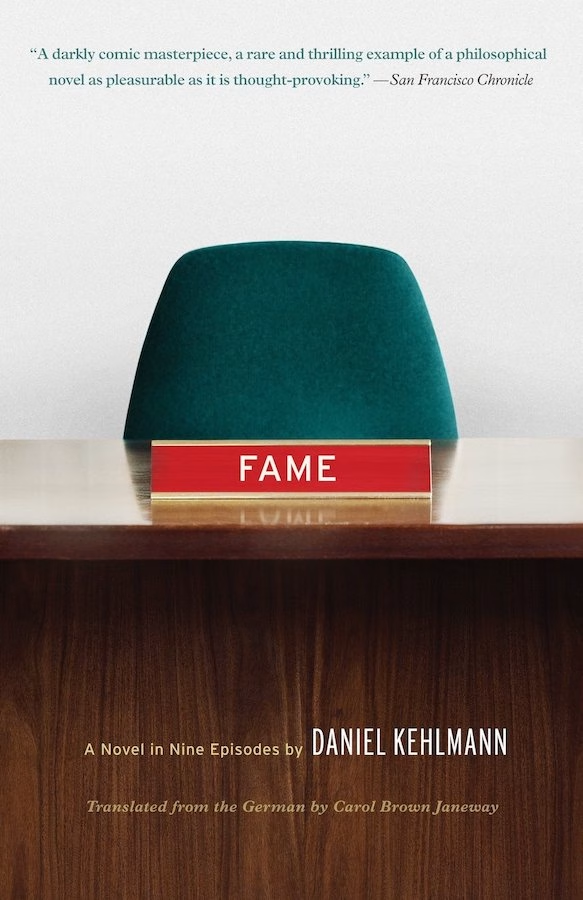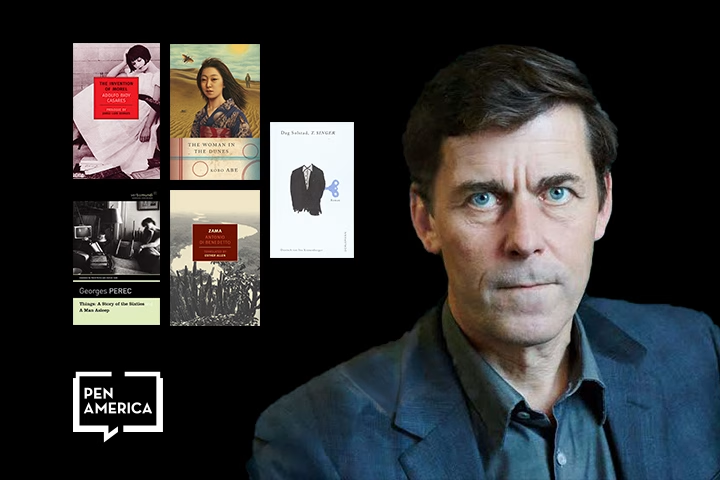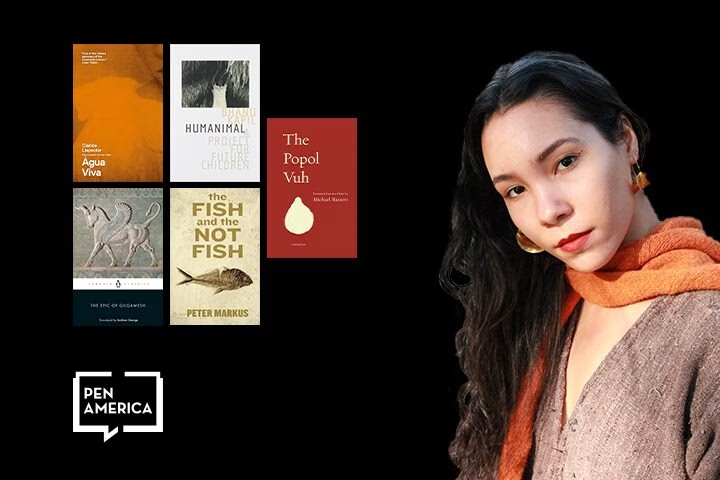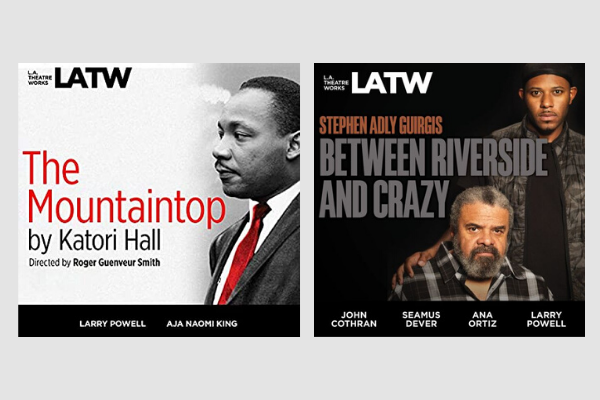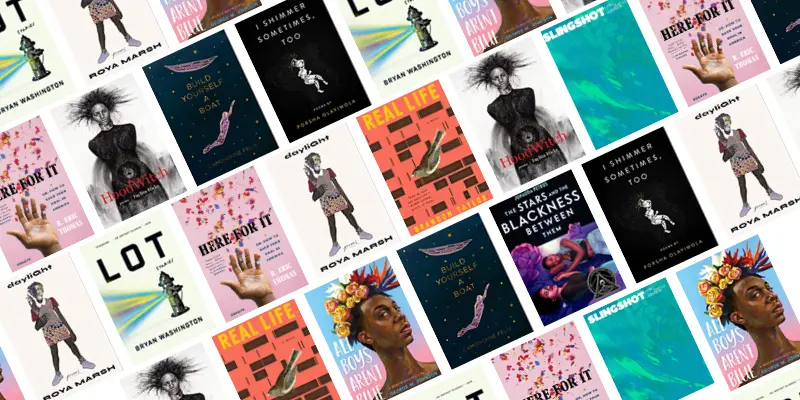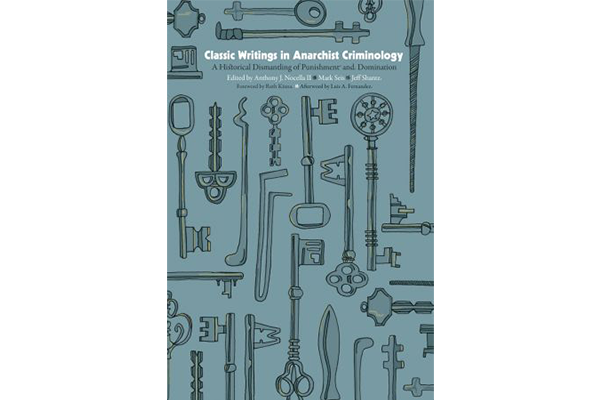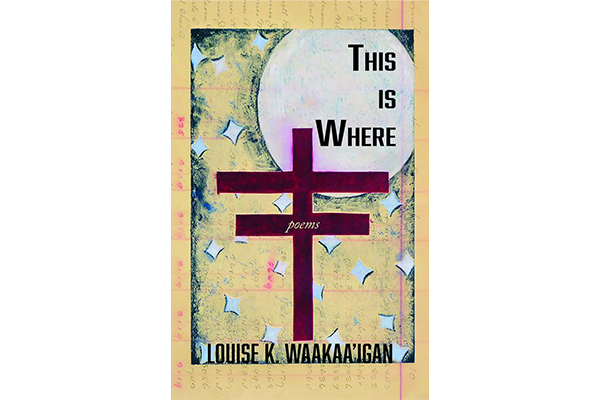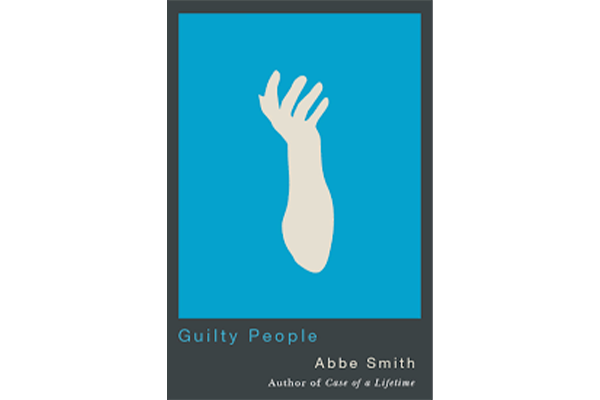Translations for Our Moment: A Reading List from the PEN Translation Committee
Amid the pandemic and worldwide protests against police brutality and systemic racism, members of the PEN Translation Committee were asked to recommend books in translation that speak to this moment. The books selected—from Africa, Europe, Latin America, and the Middle East—tell stories of journeys and escapes, love and camaraderie, state terror and personal trauma, activism and engagement, existential anxieties and more, and feature several lesser-known, newer voices among the titles.
Minor Detail, Adania Shibli (New Directions, 2020)
Translated from the Arabic by Elisabeth Jaquette
Bookshop | Amazon
Minor Detail is a taut, chilling account of the rape and murder of a young Palestinian woman by Israeli soldiers in 1949, and another Palestinian woman’s obsession with this atrocity decades later. In a remorselessly deadpan voice, Shibli details the constant, dehumanizing terror of life under authoritarianism. Jaquette’s translation is mesmerizing in its control of tone, which only heightens the horror.

Why We Took the Car, Wolfgang Herrndorf (Arthur A. Levine Books, 2014)
Translated from the German by Tim Mohr
Bookshop | Amazon
Invisible at school and home and infatuated with the most popular girl in the class, who doesn’t know he exists, Mike is going nowhere until Russian immigrant Tschick turns up in class, disheveled and disruptive. When the popular kids exclude them from a party, the two steal a car and flee their Berlin suburb for an unknown destination. Full of outrageous humor, this coming-of-age story celebrates an unlikely friendship and the freedom of the open road. Mohr’s translation captures Mike’s first-person voice as he struggles not to be boring, as well as the zaniness of his wild adventure.

Translation as Transhumance, Mireille Gansel (Feminist Press, 2017)
Translated from the French by Ros Schwartz
Bookshop | Amazon
In this extraordinary account of a life in translation, Gansel describes how, outraged by the “bomb ’em back to the Stone Age” strategy of the U.S. military in Vietnam, she studied Vietnamese and went to Hanoi in 1973 to collaborate with poets there on translating an anthology of Vietnamese literature into French. In Schwartz’s luminous translation, the book offers us a moving portrait of the translator as both activist and ally.
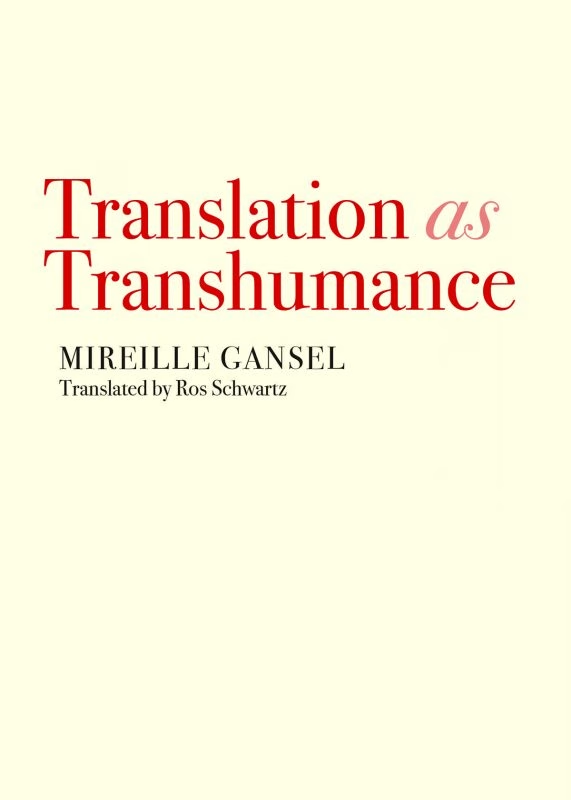
La Bastarda, Trifonia Melibea Obono (Feminist Press, 2018)
Translated from the Spanish by Lawrence Schimel
Bookshop | Amazon
The orphaned Okomo lives with her grandmother, who tries to groom her for a marriage that will bring her an income. Yet, Okomo yearns to cut off her hair, visit her reviled gay uncle, and find her estranged father. Schimel’s subtle, wise translation gives expression to both the oppressive class and gender relations of Equatorial Guinean society and the outlawed desires of the unconventional young protagonist.
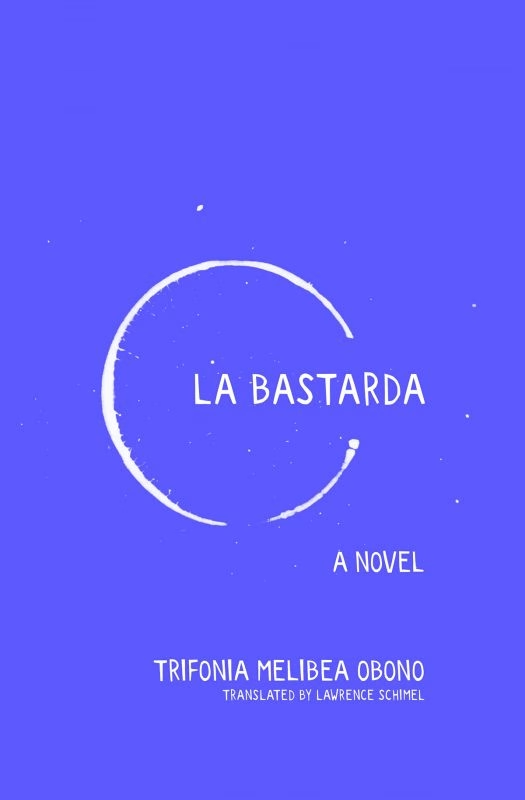
The Time of the Doves, Mercè Rodoreda (Graywolf Press, 1986)
Translated from the Catalan by David Rosenthal
Bookshop | Amazon
One of the great 20th century novels, published while dictator Francisco Franco was still alive, The Time of the Doves views the Spanish Civil War from the lifelong perspective of a young, working-class Catalan woman. As Natàlia is far from the front, the war is not the crux of the novel, but one more event in a woman’s life that includes love and sex, along with hunger, prejudice, fear, despair, and the fight to survive. After 30 years, Rosenthal’s translation still keenly conveys both the squalor and the luminosity of Natàlia’s story.
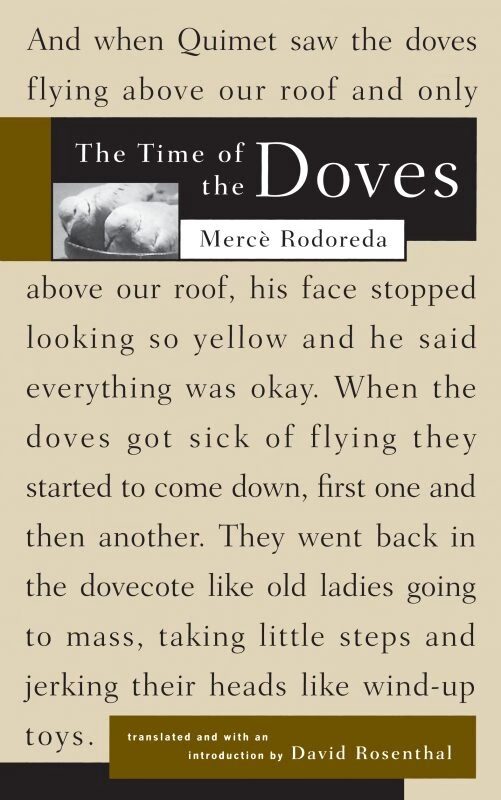
Cannibal Metaphysics, Eduardo Viveiros de Castro (University of Minnesota Press, 2017)
Translated from the Portuguese and edited by Peter Skafish
Bookshop | Amazon
The best definition of this book’s aim is given by the author: “The position argued here. . . affirms that anthropology should remain in open air continuing to be an art of distances keeping away from the ironic recesses of the Occidental soul (while the Occident may be an abstraction, its soul definitely is not), and remain faithful to the project of the externalization of reason that has always pushed it. . . outside the bedroom of the Same.”
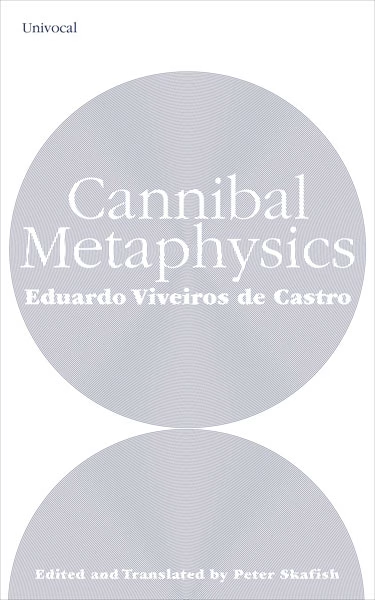
Exile and Helplessness, Nabile Farès (Lavender Ink, 2012)
Translated from the French by Peter Thompson
Publisher | Amazon
This experimental work, set just after Algeria’s War of Independence, probes issues of identity—including race, gender, nationality—in the wake of European colonialism. The intensity and self-awareness of this work in relation to both language and the existential urgency of its content brings this work closer to the white heat of poetry than to the narrative leisure of the novel. It is exactly this urgency that Peter Thompson, now the attitré translator of the lion’s share of Farès’ oeuvre, brings over into English, retaining Farès’s clarity and formal inventiveness.

Facing Gaia: Eight Lectures on the New Climate Regime, Bruno Latour (Polity Press, 2017)
Translated from the French by Catherine Porter
Bookshop | Amazon
Latour here argues that the complex and ambiguous figure of Gaia offers an ideal way to disentangle the ethical, political, theological, and scientific aspects of the now obsolete notion of nature. The fact that Catherine Porter—one of the grandes dames of translation practice and theory at work right now—is the translator of Facing Gaia further vouchsafes the importance of this book.
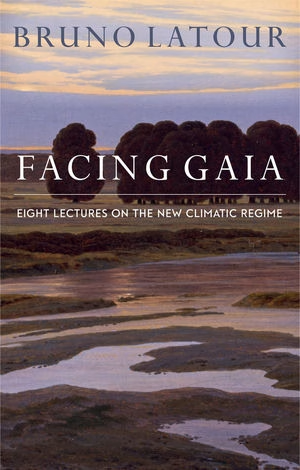
Materia prima, Amanda Berenguer (Ugly Duckling Presse, 2019)
Edited by Kristin Dykstra and Kent Johnson
Translated from the Spanish by Gillian Brassil, Anna Deeny Morales, Mónica de la Torre, Kristin Dykstra, Kent Johnson, Urayoán Noel, Jeannine Marie Pitas, and Alex Verdolini
Bookshop | Amazon
A seminal book for which I very happily wrote the following blurb: “Amanda Berenguer, a major voice of the Uruguayan group of artists and thinkers known as the Generation of ’45, is finally getting her due in anglophone territory with these fine translations of a well-edited selected poems. Hers is urgent work, ‘wingenious’ and ‘mythovulsive,’ feisty yet lyrical, playful yet deeply serious, explorative yet assured. A great achievement.”
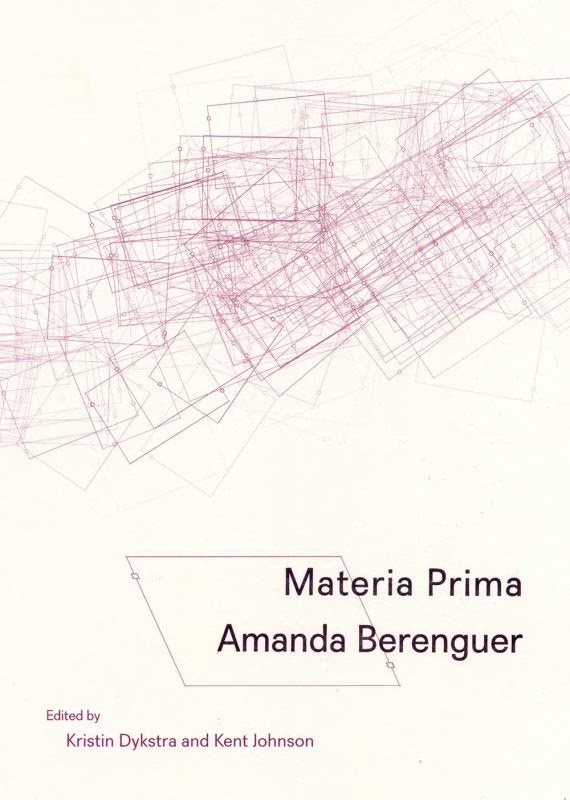
Love in the Time of Cholera, Gabriel García Márquez (Vintage, 2007)
Translated from the Spanish by Edith Grossman
Bookshop | Amazon
This romantic story begins when Florentino and Fermina fall madly in love when they are young. But Femina ends up marrying a wealthy doctor, breaking Florentino’s heart. When Fermina’s husband dies—half a century later—Florentino again declares his love for her, and their relationship resumes, amid a cholera epidemic. This tale of love, loyalty, and patience was beautifully translated by Edith Grossman. After reading it, I actually wrote to her to compliment her on her work—the first time I had ever written to a translator, and quite a while before I became a translator myself. Now, I feel I appreciate her skill even more.

The Little Prince, Antoine de Saint-Exupéry (Mariner Books, 2000)
Translated from the French by Richard Howard
Bookshop | Amazon
This classic story’s creativity and charming illustrations appeal to both children and adults, and is appropriate for readers of all ages. Its symbolism is clear, making the story an allegory of kindness, tolerance, and love. Adults should always read this book to children, but also whenever you feel you need to be uplifted. Richard Howard’s translation poetically brings Saint-Exupéry’s work to life.
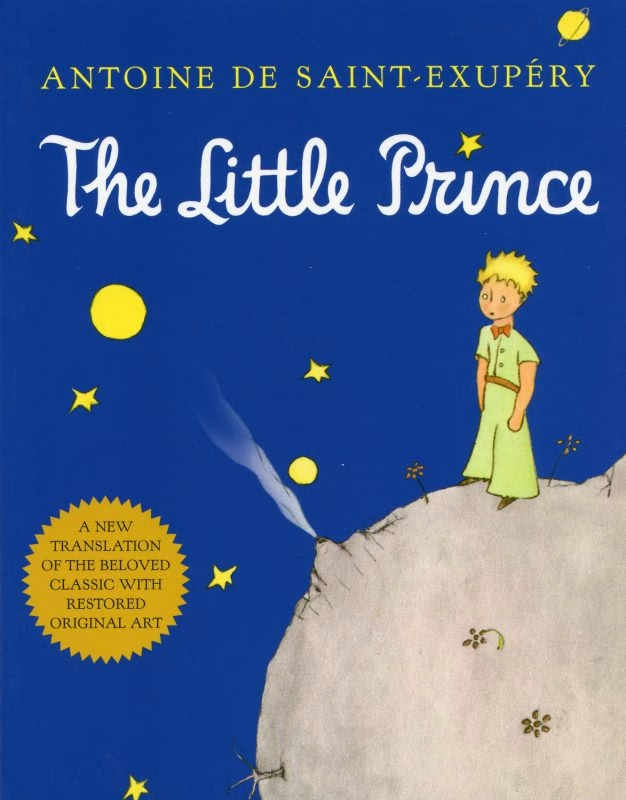
Fame: A Novel in Nine Episodes, Daniel Kehlmann
Translated from the German by Carol Brown Janeway
Bookshop | Amazon
Fame is probably the most entertaining book about existential angst that you will ever read. The interlinked narratives about people of moderate renown having their sense of self compromised by a cell phone, a trip to an obscure country, and the unwelcome recognition of the hollowness of one’s own writings were both profound and laugh-out-loud funny, and made me an instant fan of Daniel Kehlmann. But credit is also due to the sparklingly ventriloquistic translation by Carol Brown Janeway, also a respected editor, who unfortunately passed away in 2015.
